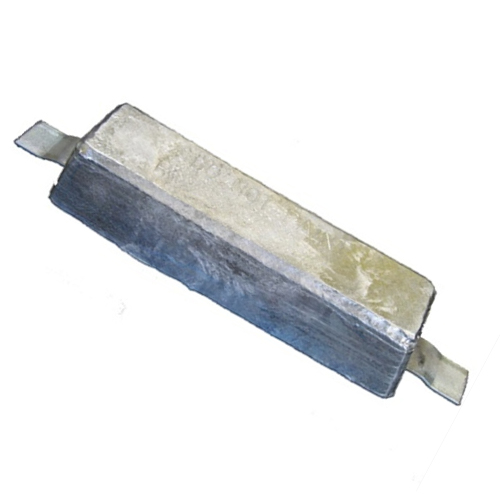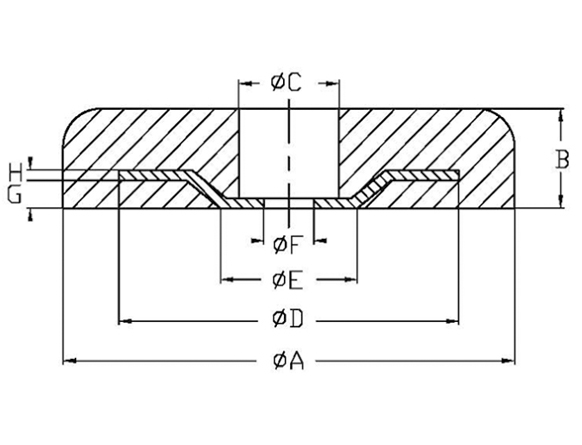About product
The aluminum anode for a seawater cooling system is a specialized component designed to protect the system from corrosion in the harsh marine environment. Its primary function is to provide cathodic protection, acting as a sacrificial metal to prevent corrosion on important components such as pipes and heat exchangers.
When not connected to any external circuit, the aluminum anode exhibits an open circuit potential ranging from 1.10 to 1.18 volts relative to the standard calomel electrode (V, SCE). This potential measurement indicates the voltage at which the anode operates in isolation.
Once connected to the cooling system and operating under load, the aluminum anode maintains a work potential ranging from 1.05 to 1.12 volts relative to the standard calomel electrode (V, SCE). This work potential ensures that the anode effectively protects the system against corrosion.







